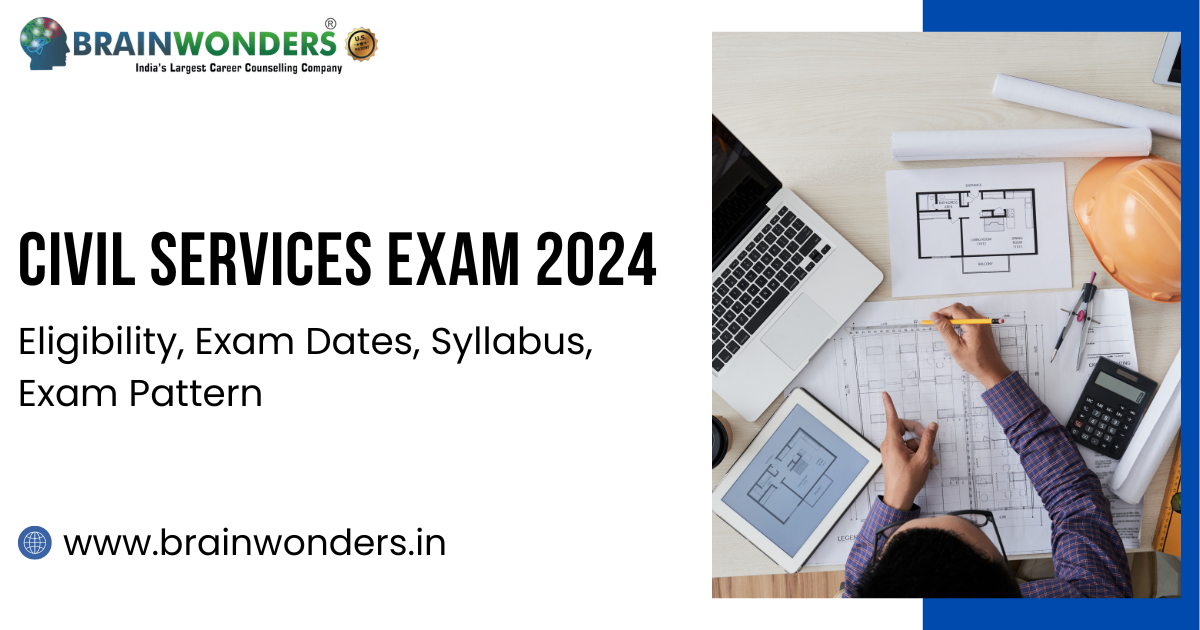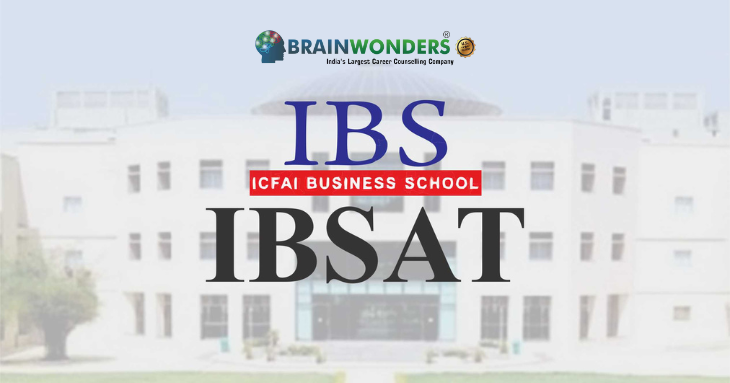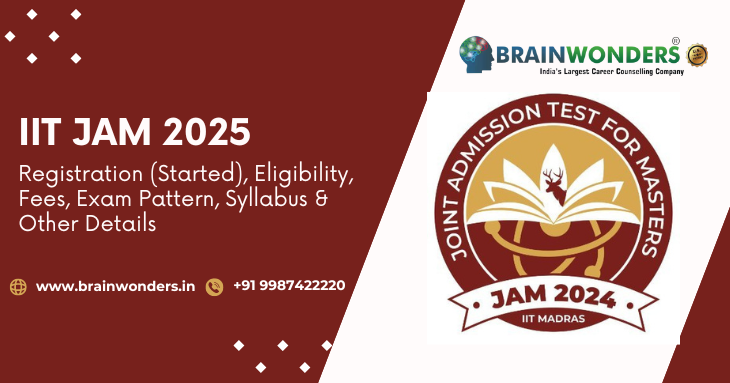

Your Brainwonders result to will help you identify the right exams you need to be ready for!
Let your unique personality, strengths, and traits guide to make the best decision of your life!
Blog
11 March,2024 | By Brainwonders

The Union Public Service Commission (UPSC) administers the Civil Services Exam (CSE), a nationwide competitive examination in India.
Through the Civil Services Examination, the UPSC appoints individuals for diverse roles in the Indian Administrative Service (IAS), Indian Foreign Service (IFS), Indian Police Service (IPS), Indian Revenue Service (IRS), and other Central and All India Civil Service positions.
The CSE Exam, which stands for Civil Services Exam, is administered by the constitutional body known as the Union Public Service Commission (UPSC). The commission issued the notification for the 2023 recruitment on February 1, 2023. This comprehensive notification provided aspiring candidates with all the essential details they need to know.
The table below furnishes crucial details about the Civil Services Examination 2024:
| Name of the Examination | Civil Services Exam (UPSC CSE Exam |) |
| Exam Level | All India / National Level |
| Conducting Body | Union Public Service Commission |
| Exam mode | Offline / Pen and paper mode |
| Number of vacancies in Civil Services 2023 | 1105 |
| Eligibility | The Civil Services Age Limit for Indian Citizens is between 21 – 32 years. |
| Number of attempts | 6 attempts are allowed for General Category aspirants in UPSC Civil Services |
| Civil Service Exam 2024 Dates |
|
Candidates can download the UPSC Civil Service Examination (Preliminary) 2024 Admit Card from the official website once it is released.
Provided below is a broad time frame during which the UPSC organizes critical events related to the exam, including notifications and examination dates for the Indian Civil Service.
In India, various State Public Service Commissions conduct civil service exams for the recruitment of candidates into state services. These State PSC Exams are structured in a manner similar to the UPSC Civil Services Exam.
The entire process of the Indian civil services examination, starting from the announcement of the preliminary examination to the release of the final results, generally spans about a year. Those candidates who successfully qualify are enlisted and undergo training for diverse services under the Central Government. Subsequently, they are allocated different State Cadres based on their preferences and rankings.
To obtain specific details about civil service exams in individual states, candidates can refer to the related article on Public Service Commissions.
As previously indicated, the notification is scheduled for release in February 2024, and individuals keen on participating in the Civil Services (Preliminary) Exam can complete the application form. The entire procedure comprises three stages, and candidates are mandated to submit distinct forms before each stage.
The civil services exam posts are categorized into two categories: Group ‘A’ and Group ‘B’.
Group ‘A’ services include three All India Services (the IAS, IPS and the IFS) and 18 other services as indicated in the table below.
| ALL INDIA SERVICES | |
| (i) | Indian Administrative Services (IAS) |
| (ii) | Indian Forest Services (IFoS) |
| (iii) | Indian Police Services (IPS) |
| GROUP ‘A’ SERVICES | |
| (i) | Indian Foreign Service (IFS) |
| (ii) | Indian P & T Accounts & Finance Service |
| (iii) | Indian Audit and Accounts Service |
| (iv) | Indian Revenue Service (Customs and Central Excise) |
| (v) | Indian Defence Accounts Service |
| (vi) | Indian Revenue Service (I.T.) |
| (vii) | Indian Ordnance Factories Service (Assistant Works Manager, Administration) |
| (viii) | Indian Postal Service |
| (ix) | Indian Civil Accounts Service |
| (x) | Indian Railway Traffic Service |
| (xi) | Indian Railway Accounts Service |
| (xii) | Indian Railway Personnel Service |
| (xiii) | Post of Assistant Security Commissioner in Railway Protection Force |
| (xiv) | Indian Defence Estates Services |
| (xv) | Indian Information Service (Junior Grade) |
| (xvi) | Indian Trade Service |
| (xvii) | Indian Corporate Law Service |
| (xviii) | Indian Revenue Service (CBEC) |
Group ‘B’ has five services under it.
| GROUP ‘B’ SERVICES | |
| (i) | Armed Forces Headquarters Civil Service (Section Officer’s Grade) |
| (ii) | Delhi, Andaman & Nicobar Islands, Lakshadweep, Daman & Diu and Dadra & Nagar Haveli Civil Service |
| (iii) | Delhi, Andaman & Nicobar Islands, Lakshadweep, Daman & Diu and Dadra & Nagar Haveli Police Service |
| (iv) | Pondicherry Civil Service |
| (v) | Pondicherry Police Service |
Individuals aspiring to take the Civil Services Exam must meet the eligibility criteria related to nationality, age, and educational qualifications. The candidate should be at least 21 years old but not exceed 32 years. Additionally, candidates are required to have completed a graduation degree in any discipline from a recognized university. It's worth noting that age relaxations are based on the candidate's category.
The Indian Civil Service Exam (UPSC IAS exam / UPSC Civils) is conducted in three stages:
The Preliminary Examination, or Prelims, marks the initial phase of the UPSC CSE process. It serves as a screening test to identify candidates for the subsequent selection stages. The Prelims exam consists of two objective-type papers, each carrying 200 marks. Only candidates surpassing the cut-off set by the UPSC for that specific year proceed to the next level of the examination. Notably, the marks obtained in Prelims do not contribute to calculating the final merit list.
The Mains Exam represents the second stage in the Civil Services Selection Process. It involves a total of nine descriptive-type papers, including 1 Essay paper, 4 General Studies Papers, 2 Optional Papers (candidates can choose from the Civil Services Exam Optional Subjects), and 2 language papers. It's important to note that the marks obtained in the language papers do not contribute to the final ranking order. Nevertheless, candidates must achieve a minimum score of at least 25% in each language paper to qualify for further consideration.
| Civil Services Exam Pattern For Mains | ||
| Papers | Subjects | Marks |
| Paper A | One of the Indian languages (listed in the Eighth Schedule to the Constitution of India) mentioned below to be selected by the candidate (Qualifying) | 300 |
| Paper B | English (Qualifying) |
300 |
| Paper I | Essay | 250 |
| Paper II | General Studies I (Indian heritage and culture, history and geography of the world and society) | 250 |
| Paper III | General Studies II (Governance, constitution, polity, social justice and international relations) | 250 |
| Paper IV | General Studies III (Technology, economic development, biodiversity, environment, security and disaster management) | 250 |
| Paper V | General Studies IV (ethics, integrity and aptitude) | 250 |
| Papers VI, VII | Two papers on subjects to be selected by the candidate from the list of optional subjects below (250 marks for each paper) | 250 |
| Sub Total (Written Test) | 1750 | |
| Personality Test (Interview) | 275 | |
| Total Marks | 2025 | |
Civil Services Interview
The personality test, commonly referred to as the interview, serves as the conclusive phase in the Civil Services Exam selection process and represents the gateway to one's desired service. Only those candidates who successfully surpass the cut-off in the mains exam are eligible to participate in the interview. The primary aim of the interview is to evaluate the candidate's suitability for the Civil Services, assessing aspects such as mental alertness, judgment balance, intellectual capacity, and moral integrity, among others, with a total score of 275 marks. The interview marks are then added to the candidate's mains exam score to determine the final merit list.
Engaging with NCERTs is fundamental when embarking on Civil Services exam preparation. Aspirants can explore NCERT Notes for UPSC to access a comprehensive list of NCERTs recommended for this examination.
Following a foundational understanding, aspirants can turn to UPSC Books to delve more comprehensively into each subject outlined in the UPSC Syllabus.
Civil Services Exam – Frequently Asked Questions
Q1: Is the Civil Service Exam challenging?
Ans: The Civil Services Examination is renowned for its challenging nature, yet attaining success in this exam is not beyond reach. The complexity of the Civil Service Exam's syllabus and exam pattern may pose difficulties for aspirants, but a well-defined strategy can lead to success in qualifying for civil services.
Q2: Are UPSC and civil service exams the same?
Ans: The acronym UPSC stands for the Union Public Service Commission, which serves as the primary organization conducting various examinations. Among these exams is the Civil Service Exam, responsible for recruiting individuals into prestigious services like IAS, IPS, IFS, IRS, and more. Explore the UPSC Calendar 2024 to determine the scheduled dates for these examinations.
Q3: Which degree is best for Civil Services?
Ans: No specific degree is deemed inherently good or bad for Civil Services. According to the UPSC Notification, candidates with a bachelor's degree from a government-recognized university/college/institute are eligible for the exam. Nevertheless, some candidates strategically align their graduation with UPSC preparation, making it advisable to choose a subject that is also part of the IAS Exam syllabus.
Q4: Can 12th Pass apply for Civil Services?
Ans: Indeed, a graduation degree is the fundamental educational requirement for the Civil Services Exam. After completing the 12th standard, individuals are required to pursue a Bachelor's course from a government-recognized college or institute. Notably, even final-year college students are eligible to apply for the Civil Services Exam.
Your Brainwonders result to will help you identify the right exams you need to be ready for!
,_Syllabus,_Pattern,_Old_Question_Papers.png)

